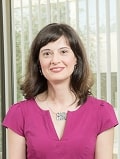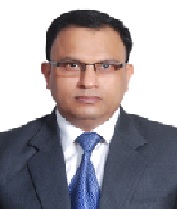Biography
Abhijit Sen holds a PhD. from McMaster University, Hamilton, Ontario, Canada and Master of Science degree from University of California, Berkeley, USA, B.Tech in Electrical Engineering from Indian Institute of Technology, Kharagpur, India. He has over 30 years of academic and administrative experience at Kwantlen Polytechnic University, BC, Canada. He served as a chair of the department for over 14 years. He has also been a visiting professor at Waikato University, Hamilton, New Zealand, and University of Applied Sciences, Munich, Germany, Centre for Development of Advanced Computing (CDAC), India, North China Institute of Aerospace Engineering, China, and Technical University of Applied Sciences, Regensburg, Germany. He has been keynote speaker in several international conferences. Most recently he delivered keynote speech "The State of AI Applications-Emerging Trends and Enterprise Issues" at “Emerging Trends and Technologies on Intelligent Systems (ETTIS – 2021)†conference held at Centre for Development of Advanced Computing (CDAC), Noida, India on March 4-5, 2021. He served as reviewers and technical committee members in number of international conferences. He also served as external examiner for Ph.D theses for several universities. He served as a member of the Editorial Board on “Recent Innovations in Computing (ICRIC 2020)-The Lecture Notes in Electrical Engineering 701†which has been published by Springer.
Research Interest
His current research interests are in the areas of Wireless Networking and Security, Radio Frequency Identification (RFID), Computing Education and Teaching Methodologies, Distributed Systems and Databases, DevOps, and Artificial Intelligence Applications. He is the recipient of Distinguished Teaching Award of Kwantlen Polytechnic University, BC, Canada. He is a Life Member of Institute of Electrical and Electronics Engineer (IEEE). He served in the Executive committee of IEEE, Vancouver Chapter.
Biography
Maria Cutumisu is an Associate Professor in the Department of Educational Psychology, Faculty of Education, at the University of Alberta, in the area of Measurement, Evaluation, and Data Science. She is also an Adjunct Professor in the Department of Computing Science, Faculty of Science, University of Alberta. Her research draws on computing science and educational psychology. She graduated with an M.Sc. and a Ph.D. in Computing Science from the Department of Computing Science, University of Alberta and she trained as a postdoctoral scholar at the Stanford Graduate School of Education.
Research Interest
Computational thinking and serious games, application of psychophysiological techniques (e.g., eye-tracking and electrodermal activity measures)
Biography
Patrick Siarry was born in France in 1952. He received the PhD degree from the University Paris 6, in 1986 and the Doctorate of Sciences (Habilitation) from the University Paris 11, in 1994. He was first involved in the development of analog and digital models of nuclear power plants at Electricité de France (E.D.F.). Since 1995 he is a professor in automatics and informatics. Professional experience: January 1989 – August 1995 Lecturer at the Ecole Centrale Paris (ECP), Laboratory of Electronics and Applied Physics. Position in section 61 of C.N.U. September 1995 – August 1999 Professor at the IUT Cergy-Pontoise, Laboratory of Modeling and Optimization in Electronic Systems. Position in section 61. since January 2009 Director of Team Image Processing and Signal (TIS) at the Laboratory of Images, Signals and Intelligent Systems. The research topics of TIS are analysis of nonstationary signals, methods of segmentation and registration imaging, optimization, data compression, modeling and control of complex systems approaches within the Artificial Intelligence.
Research Interest
His main research interests are computer-aided design of electronic circuits, and the applications of new stochastic global optimization heuristics to various engineering fields. He is also interested in the fitting of process models to experimental data, the learning of fuzzy rule bases, and of neural networks.His research area is relatively (since 1982) new “metaheuristic†optimization such as simulated annealing, which are indicated for the so-called problems of “hard optimization†because of their ability to avoid in principle, trapping in sub-optimal solutions. This topic is multidisciplinary in nature, both by the source of the methods studied (physics, biology, ethology). Much of his work is explicitly one or the other keywords – in particular, modeling, identification, learning rule bases (artificial intelligence), control, nondestructive testing and maintaining the biological and medical engineering.




